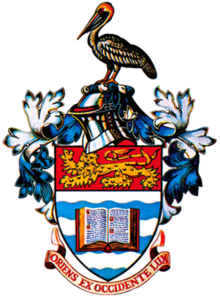UWI and European University Institute share COVID-19 and trade experiences in the Caribbean and Europe

Regional Headquarters, Jamaica. Friday, December 4, 2020—COVID-19 has had a huge impact on the trade and economic fortunes of both the Caribbean and Europe. A few weeks ago, The University of West Indies (The UWI) and the European University Institute (EUI) brought together researchers and practitioners for an e-dialogue to exchange thoughts and best practices on trade and economic affairs between the two regions. The event entitled, COVID-19 and Trade – Sharing the Experiences of the Caribbean and Europe was the first initiative stemming from a partnership agreement between the two universities signed in July. It was streamed via UWItv and the recorded broadcast can be accessed here.
The e-dialogue was led by the two principals responsible for executing objectives specified in the partnership agreement: Dr Luz Longsworth, Pro Vice-Chancellor, Global Affairs at The UWI and Principal of its Open Campus along with Professor Bernard Hoekman, Director of the Global Economics Research Area of the Global Governance Programme, Dean of External Relations at the EUI. Other speakers included H.E. Joy-Ann Skinner, Ambassador of Barbados to the EU; Felipe De La Mota, European Union Team Leader for Regional Integration and Trade programmes in the Caribbean and Dr Don Marshall, Director of the Sir Arthur Lewis Institute of Social and Economic Studies. It was chaired by Dr Jan Yves Remy, Deputy Director of the Shridath Ramphal Centre at The UWI.
Among the topics discussed included the pandemic’s impact on international supply chains and the trade policy responses of international governments. More importantly, speakers highlighted concerning contemporary relations between Caribbean and EU territories such as blacklisting and restrictions on food and medical products during the pandemic, and the potential for plurilateral agreements and mutual agendas in the future.
In his presentation Dr Marshall explained that the fundamental logic driving world trade has been upended given the nature of the COVID-19 crisis. “Previous global pandemics affected economically less important countries. This one is different” he said. He noted that the nations with the most imported cases, those with the first and second lockdowns and the ones that had severe first lockdowns/waves included China, Korea, Italy, Japan, US and Germany which account for about 55% of world’s supply and demand/GDP; 60% of manufacturing and 50% of world manufacturing exports. He also noted that the net result has been a disruption in the supply chains and industries such as tourism and manufacturing. For small island states in the Caribbean tourism is a mainstay, and this along with the disruptions in manufacturing have had severe economic repercussions affecting small island developing states and exacerbated vulnerabilities and economic partnerships in the Caribbean region.
The purpose of the event was to provide a forum for information-sharing, comparative analysis and debate of interest to policy-makers, academia, researchers and the public. Dr Longsworth commented that “The coming together of our two regions — the Caribbean and the EU — linked by history but also by being two common markets in the world that are working is significant as we share experience and finding possible collaborations to find solutions.” She added that the relationship is a part of the overall UWI Global strategy of critical collaboration and partnerships with world class universities on every continent.
Professor Bernard Hoekman acknowledged that MOUs are very common among universities but quite frequently the arrangements never do much more than get written on paper. “However, in this is particular case,” he stated, “we have a real live action with this event that signaled a very dynamic partnership with The UWI.” He said that he was looking forward to working together on not just joint initiatives of interest to faculty and students but engaging with the policy world to do things that are useful and relevant from a policy perspective, particularly with a focus on EU Caribbean relations.





